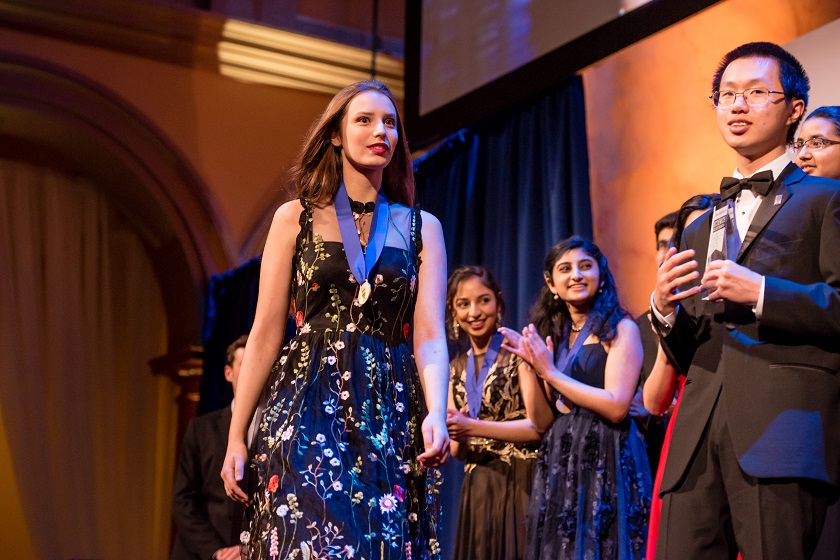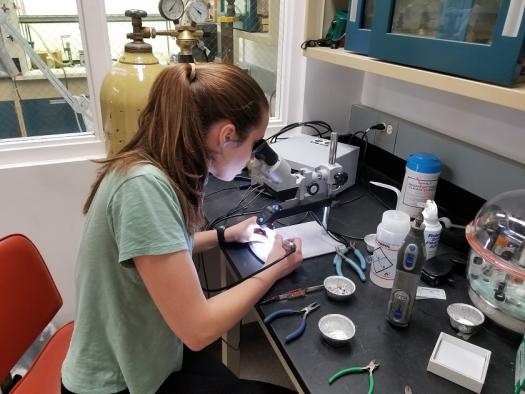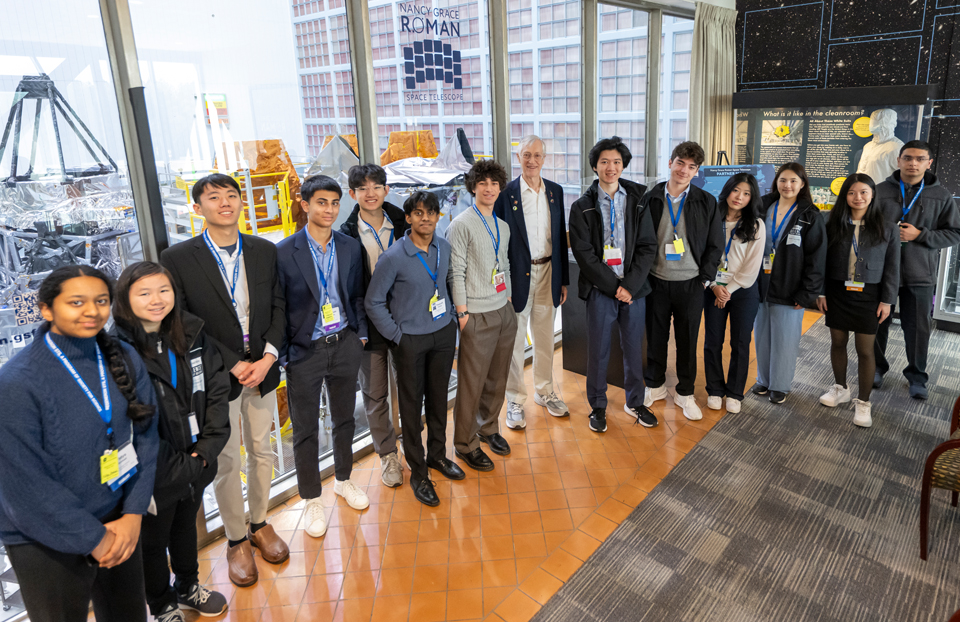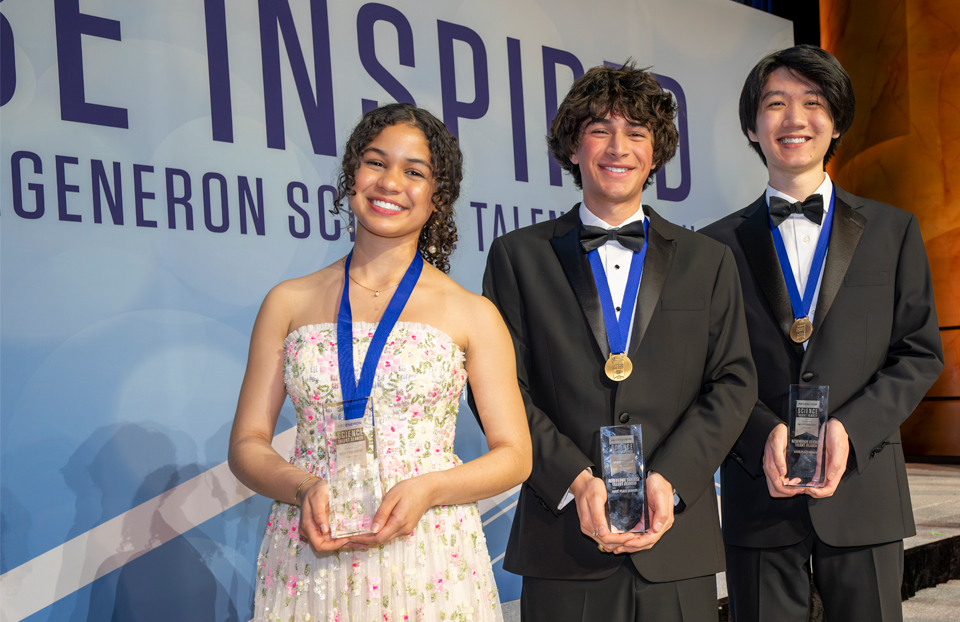Five questions with 5th place winner of the 2019 Regeneron Science Talent Search, Carolyn Beaumont

During finals week of the Regeneron Science Talent Search, 40 of the brightest, young scientific minds in the nation travelled to Washington D.C. to showcase their scientific projects to the public. We asked the top 10 winners a variety of questions to learn more about their projects, competition experience and plans for the future. Here is some of what top winner Carolyn Beaumont, 17, a high school senior from McLean, Virginia, as featured in The Connection and Inside Nova, had to say.
Which sci-fi advancement are you upset we don’t have by now?
A common theme in sci-fi that I had expected to exist by now is human space travel — both in the solar system and beyond — and especially colonization of other planets. Having this capability would serve as a safety net for massive environmental disasters and would also lead to many new scientific discoveries. While there are many logistical and ethical concerns about expanding out into the galaxy, I think it is important to develop technology that would allow us to colonize other worlds.
Which scientist – alive or deceased – would you want to solve scientific mysteries with and why?
If I could work with any scientist, I would choose Dr. Vera Rubin, the often overlooked female astronomer who confirmed the existence of dark matter. Having done my research at the Carnegie Institution, where Dr. Rubin worked for 50 years, I often heard stories from staff scientists about her intense dedication and passion for science and her desire to share that with others. Dr. Rubin was also a fearless trailblazer. She forged a path for many women to pursue astronomy and she did not shy away from presenting her controversial research.

PHOTO COURTESY OF CAROLYN BEAUMONT
What would you invent if you had all the money in the world?
Unlike other major issues with scientific solutions, I think that access to clean water is a topic that is often less talked about, especially in the political arena. Vast swaths of people across the globe are unable to easily get clean water and even areas in the US such as Flint, Michigan, still do not have safe water. Therefore, I would invent some sort of large scale water purification system that was low-cost enough to be utilized around the world. My system would either utilize desalination to make ocean water drinkable, or technology to decontaminate the water that is already there in the area.
What would you like to be most renowned for?
While I am deeply interested in the geochemistry I studied for my Regeneron STS project, I plan to make my career in the field of astrochemistry. I plan on finding pathways for the formation of highly bio-relevant molecules, such as DNA bases, in space. Understanding what molecules can form in space gives us a better understanding of what was in the so called “primordial soup” when the Earth first formed. From there, the ultimate goal would be to discover what actually creates life. Contributing to the effort to discover this is what I would like to be most renowned for.
What would you say in order to inspire the next generation of scientists?
There is still so much to be done in the world of science, especially in regards to biomedical research and climate change, and our generation and the ones after us are the ones who will be dealing with the effects of these issues. Thus, it is critical that as many people as possible work to tackle these issues by pursuing science. And, contrary to media portrayals, a scientist isn’t a genius working alone in a lab coat; instead, anyone with a strong desire to better the world and the persistence to make something work can be a scientist. I encourage anyone interested in science to try it out as one’s perceived scientific ability in no way indicates someone’s creativity and potential to make innovative solutions to today’s pressing problems.
If you know amazing young scientists like Carolyn who are interested in entering their original research projects in the 2020 Regeneron Science Talent Search, sign up here.


